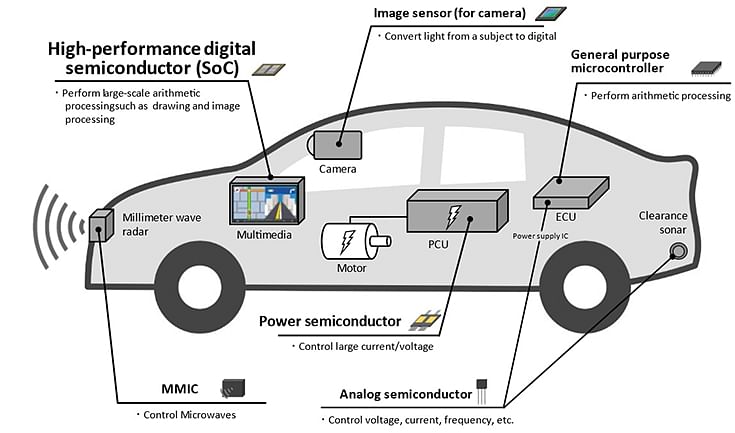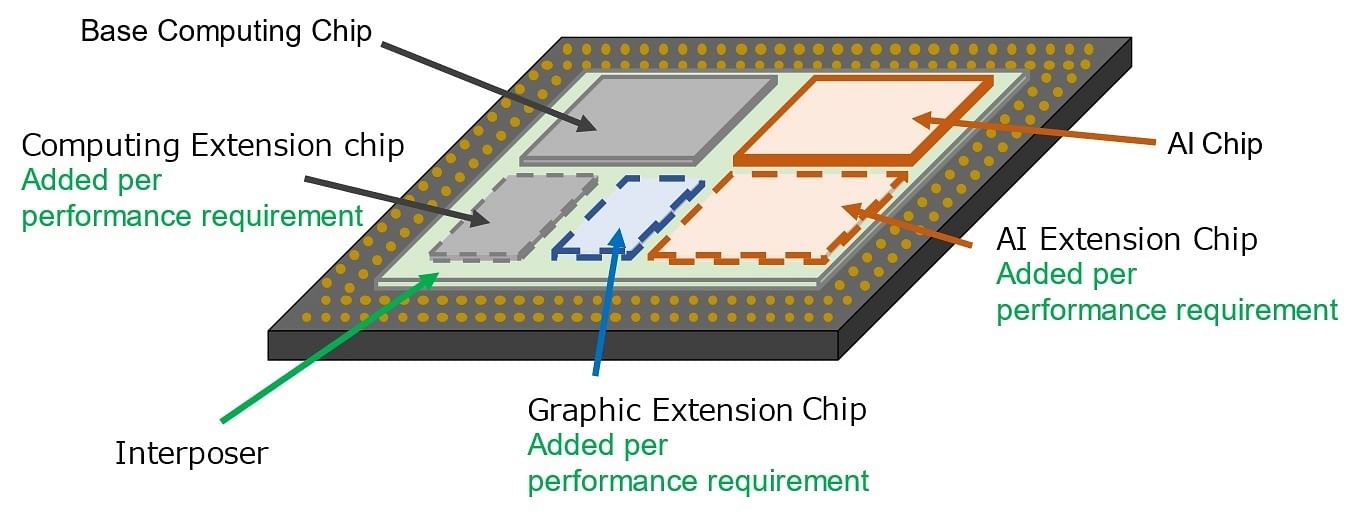Twelve Japanese companies join forces to develop automotive SoCs using chiplet technology
Honda, Mazda, Nissan, Subaru, Toyota, Denso, Panasonic Automotive Systems, Cadence Design Systems, Mirise Technologies, Renesas Electronics, Socionext Inc and Synopsys join forces to research and develop automotive System-on-Chip-applying chiplet technology
Twelve leading companies from Japan, comprising automotive, electrical component, and semiconductor manufacturers, have set up the ‘Advanced SoC Research for Automotive’ (ASRA) consortium to conduct research and develop high-performance digital semiconductors (System on Chip, SoC) for use in automobiles. ASRA will research and develop SoCs for automobiles using chiplet technology to install SoC in mass-production vehicles from 2030 onward.
The 12 companies comprise five automakers (Honda, Mazda, Nissan, Subaru, Toyota), two electrical component manufacturers (Denso, Panasonic Automotive Systems) and five semiconductor companies (Cadence Design Systems, Mirise Technologies, Renesas Electronics, Socionext Inc and Synopsys). Keiji Yamamoto, Senior Fellow, Toyota Motor Corporation, has been appointed chairman of ASRA and Nobuaki Kawahara, Senior Advisor, Denso Corporation, the executive director.
 Examples of semiconductors used in cars.
Examples of semiconductors used in cars.
Approximately 1,000 semiconductors are used in each automobile, and the types vary depending on the application. Among them, SoCs are essential semiconductors for autonomous driving technology and multimedia systems in automobiles, which require state-of-the-art semiconductor technology to achieve advanced computing power.
APPLICATION OF CHIPLET TECHNOLOGY
 The advantages of Chiplet Technology include higher performance and multifunctionality, higher yield chips, and timely commercialisation of SoCs with functions and performance optimized for end-user (automotive companies) requirement.
The advantages of Chiplet Technology include higher performance and multifunctionality, higher yield chips, and timely commercialisation of SoCs with functions and performance optimized for end-user (automotive companies) requirement.
ASRA will pursue the high level of safety and reliability required for automobiles by having automakers play a central role. Also, by bringing together the technological and experiential knowledge of electrical components and semiconductor companies, ASRA will aim to apply cutting-edge technologies practically. Specifically, ASRA plans to research and develop SoCs for automobiles using chiplet technology and combining different semiconductor types.
ASRA aims to establish in-vehicle chiplet technology by 2028 and to install SoCs in mass-produced vehicles from 2030 onward. By combining Japan's technological capabilities and experience in automotive, electrical components, and semiconductors, ASRA will work with industry, government, and academia to promote domestic and international collaboration as a world-leading technology research group.
RELATED ARTICLES
Autoliv Plans JV for Advanced Safety Electronics With China’s HSAE
The new joint venture, which is to be located strategically near Shanghai and close to several existing Autoliv sites in...
JLR to Restart Production Over a Month After September Hacking
Manufacturing operations at the Tata Group-owned British luxury car and SUV manufacturer were shut down following a cybe...
BYD UK Sales Jump 880% in September to 11,271 units
Sales record sets the UK apart as the largest international market for BYD outside of China for the first time. The Seal...






 By Autocar Professional Bureau
By Autocar Professional Bureau
 28 Dec 2023
28 Dec 2023
 9071 Views
9071 Views





 Ajit Dalvi
Ajit Dalvi




